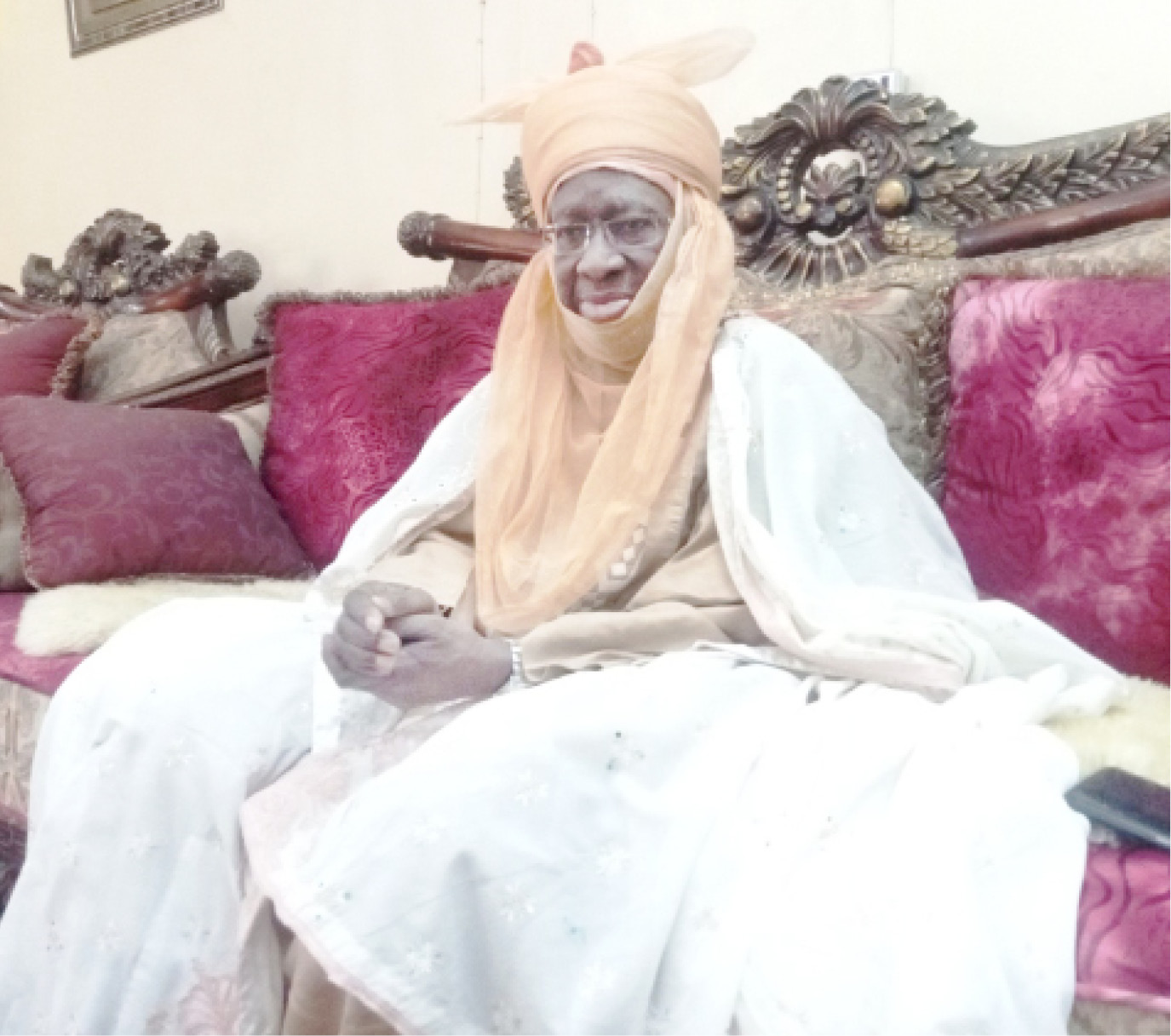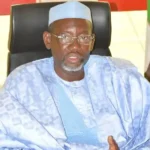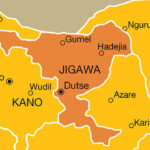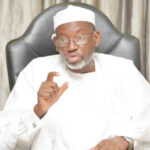HRH, Alhaji Ahmed Mohammed Sani II (CON) is the 16th Emir of Gumel in Jigawa State. On December 16, 2020, he clocked 40 years on the throne after taking over from his late father. As one of the longest-serving traditional rulers in Nigeria, he spoke on how he assumed leadership position at a young age, his experience in the United States as a crown prince, among other memories.
You just clocked 40 years on the throne, how has life treated you?
Well, I will say that life has treated me very well. I have enjoyed being on the throne from the day I was selected till date. And there has been a change in the way things are done in the emirate. I brought a lot of improvements on the throne and my entire domain.
- Mysteries of the kidnapping economy
- Raheem Sterling scored the only goal as Manchester City beat in-form Southampton

You ascended the throne in 1980, what changes have you brought to the kingdom?
I have brought many changes. In the first place, I was selected to be the emir at a young age – some years above 30. I introduced a lot of things into the leadership of the kingdom, which are very remarkable to the people. One thing that is strange to the people is my open-door policy. I believe it is a tremendous change in running the affairs of the kingdom. My doors are open to every subject in the kingdom and people are surprised. That was not usual to them.
As a modern emir I decided to bring modernity to the throne. I am always ready to come out and welcome complaints from my subjects, and people are surprised because they were not used to seeing an emir openly to present their complaints directly to him. But I believe in democracy and we had to accept it. People welcomed it, especially my councillors because they were with my father, who was not running the emirate in line with the changes I introduced.
Because of my educational qualifications and working experience, things had to change. People are free to come and ask questions on anything, including development, farming, marketing etc.

Sometimes I issue people introductory letters from my office. And quite a lot of them got appointments as agents of products here in Gumel. People are very grateful. They usually come to thank me for what I have done for them. That is why I am on this throne.
Gumel Emirate has dual heritage with Sokoto Caliphate and the Kanem-Borno Empire, how do you manage this union?
Originally, we came from Borno, not Sokoto; we were Kanuri. But staying within the premises of Kano, we became Hausa. You can see my tribal marks, which are typically Kanuri – five on the right and four on the left.
Are you still in touch with some of your childhood friends?
Yes, indeed. Dalhatu Gumel was my childhood playmate. I can also remember Wazirin Gumel and Alhaji Umaru, who we called Umar Dan Kan Kani. We are still together.

You went to school when few people did, what was your experience?
My grandmother used to have leftover food, so a lot of school children used to go to her house to eat because they didn’t have anything to eat. She would cook early in the morning and also make fura for sale. So people would go there, eat the leftover, free of charge, and go to school or their workplaces.
You studied abroad; can you remember some of your colleagues? How did you cope with foreign foods and other things?
Honestly, I was very lucky to go abroad because my cousin, the present Waziri Gumel, went there ahead of me. He was there a year before me. I went to America. In fact, he made the struggles and effort to get me admission into Ohio University. And I enjoyed being there with him because we lived in the same house and had one transport. I bought a Mustang Sport vehicle and we used to use it to go out for shopping and other places during weekends. So life became easier for him. We lived in the same house because he rented a two-bedroom apartment; he was in one room and I was in the other. We had cooking facilities and so on. So we enjoyed being there as if we were back home in Gumel.
He introduced me to many of the students in Ohio University. Fortunately for me, because I had been in Maiduguri, I knew some people who were also in Ohio; for example, Baba Mayari.
As the commissioner for information in Kano State over 40 years ago, you pioneered the setting up of some of the state-owned media houses; do you still go to those places?
Well, I used to, but now, I have no time. Time is very limited to me because of complaints from my subjects, which I have to listen to and make decisions for people who look upon me as a saver. I give them a lot of help. They never thought I would extend to them the facilities at my disposal.
I used to call people who refused to allow their children to go for higher education and I advise them. I would tell them that as a crown prince, if I would go to school in a different country with a different language and custom, there’s no reason they should not allow their children acquire western education.
So I became like a role model to them. They reasoned that if a crown prince would leave his family to go to a foreign country, ‘then our children should go and we are sure that nothing would happen to them.’

Looking at the time you became the Emir of Gumel and now, the security situation in Nigeria has drastically changed; what advice do you have for the Federal Government and governors?
The Federal Government has the responsibility of security in the country. I think that if President Buhari wants things to get easy for him, he should use us as his security officers, not just the police and the army; those are armed officers of the government and people are afraid of them. As a result of that, they do not get enough information from the people. For example, they are afraid that the police would arrest them if they gave information about what happened.
I had a tough time convincing people to be friendly with the police and the army, especially the army. When we were kids we used to go and see soldiers march, and we enjoyed it. So when it came to me to convince people to join the army, I really found it a little easier because the army used to come here and camp outside the town, and they used to march and people enjoyed seeing them march. They also convinced young people to enjoy. They recruited a lot of people, like one of my uncles, General I.D Gumel. He joined the army from his schooldays. He was in Government College, Zaria.
What is your advice to the people of Gumel for the years ahead?
We hope that Gumel of today and tomorrow would not be that of yesterday. They should try as much as possible to cope with the changing trend of events, particularly on education, farming, agriculture and standard of living.
We had to work very hard to convince them not to heap dirt, and sometimes corpses of animals, which bring a lot of diseases to the people.




